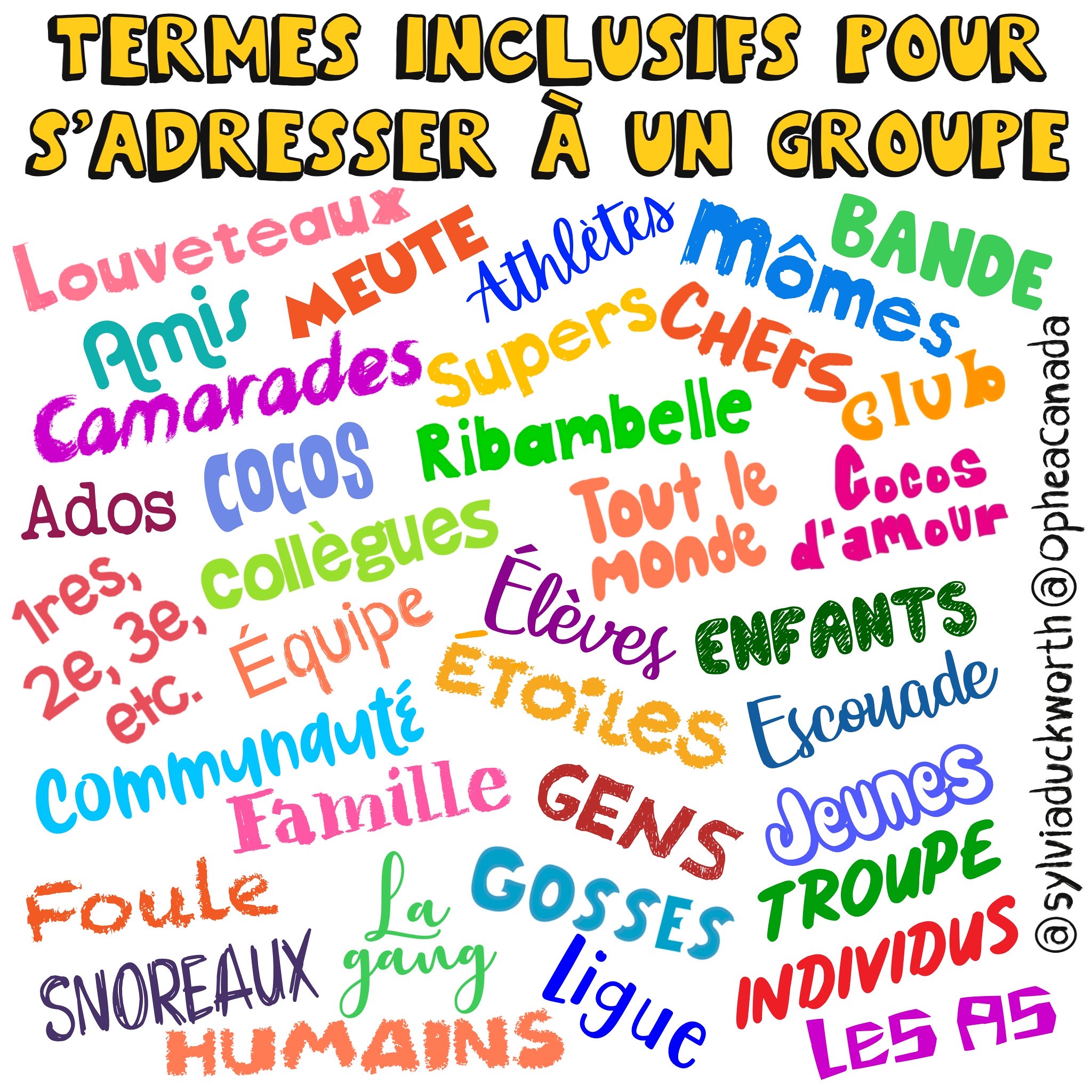Thinking about how to authentically integrate social justice elements into a language program is a necessary, but enormous undertaking. I am gathering ideas, and I am learning so much from educators who are further along on this journey, but I quickly realized I needed to pick one area of focus for the year and start there. I wrote about the evolution of my how might we question in a blog post (The Journey of My How Might We Question), and I landed on:
How might we amplify the theme of identity in the FSL classroom to support LGBTQ+ students as they talk about themselves in order for everyone to feel seen and valued?
My main goal this year was to teach my students the non-binary pronoun iel and support them as they practised using iel along with other non-binary vocabulary such as family members and adjectives.
@hfransen and I collaborated on creating a slide deck to introduce non-binary pronouns to our students. I tried it with my Grade 7s in the fall and then just this week with my Grade 8s. The student response has been very positive. This week, I heard my students say “I have learned so much in just the first few minutes of our class!” and “This lesson was a big W, Ms Bairos.” That immediate and positive feedback is so motivating and inspiring to me. It tells I am on the right track.
I also noticed some of my grade 7s using non-binary pronouns when they were writing descriptive paragraphs about each other, and when they were writing about themselves.
Movie Talks have also been a really easy, yet powerful, way to incorporate more discussions about identity. Richard Smith is an FSL teacher in Ottawa, and he is compiling a slide deck of movie talks that span a wide variety of topics (Slide Deck: Richard’s Movie Talks). Movie Talks can also be a great way to talk about how we presume gender.
After I blogged about my initial reflections and wonderings connected to social justice in the FSL classroom (read it here), I was invited to present a session on this topic with the Ontario Modern Language Teacher’s Association spring conference, so I am excited to share my learning further with others later this month.
I have learned so much, and I continue to seek out and learn new ideas and perspectives regularly. I’ve compiled many of my “go to” resources in a Google Doc (DEIJ Resources for French Teachers).
Here are a few that are most connected to my how might we question this year:
- Book: Gender: Your Guide by Dr. Lee Airton
- Slide Deck (Teacher resources): LGBTQ and Gender Representation in the French Classroom from Rina Mazor
- Student resource: Identity Chat mat
- PDF: Guide de grammaire neutre et inclusif
- Dr. Kris Knisley ( Resources for teachers, Twitter)
- Anti-Racism and Representation For French Teachers Facebook Group
One of my main takeaways has been that incorporating social justice elements into a classroom does not mean creating new units. There are opportunities to within the content we are already doing in our classrooms and view it with a social justice lens. In a novice language classroom, I have found that some easier entry points are the themes of identity and diversity.
I still wonder how I might go deeper into this work. I have had some lingering timing challenges from the pandemic at my school this year, and I am hopeful they will be resolved next year. I would like to build in more time and opportunities for student reflection, especially with how they might connect to the Social Justice Standards by Learning for Justice.
In true Cohort 21 fashion, this really feels like it is only the end of the beginning.
Jenn


Thank you so much for your thoughtful reflection. In our last department meeting, we were just discussing so many of the issues you brought forward and we didn’t have answers. Thank you for sharing so many wonderful resources! I’m excited to share them with my teaching partners next week and to incorporate them in my teaching.
Hi Danielle,
Thank you for this feedback. I really appreciate it. I hope the resources are helpful, and I’d love to hear from you what worked, what didn’t and/or what new ideas you are trying at The York School.
Jenn
Hello @jbairos!
I am inspired what you have written and learned here. Many years ago I did a social justice unit in my math class, and you are right – implementing social justice ideology does not require new units but looking at established units through a different and critical lens.
As you said the journey is just beginning and I hope that the learning you are seeing in FSL can be expanded to other subject groups; perhaps a future opportunity to create an interdisciplinary unit.
Thank you.
Leslie
@jbairos It’s great to see your action plan coming to fruition and the realized impact of this change on your students. I know you’ve taken the time to be thoughtful and careful about how you’ve aimed to reconsider your teaching practices; my question for you is what now? What does “going deeper” look like? How will you know once you’ve gotten there? I’ll be eager to find out how you answer these questions for yourself and for your students!
Hey Jennifer,
I appreciated you writing this post and sharing all these wonderful resources. As a francophone and now FSL teacher I have questioned the gender roles in the French language and it’s so good knowing that I others have already begun dismantling some of this.